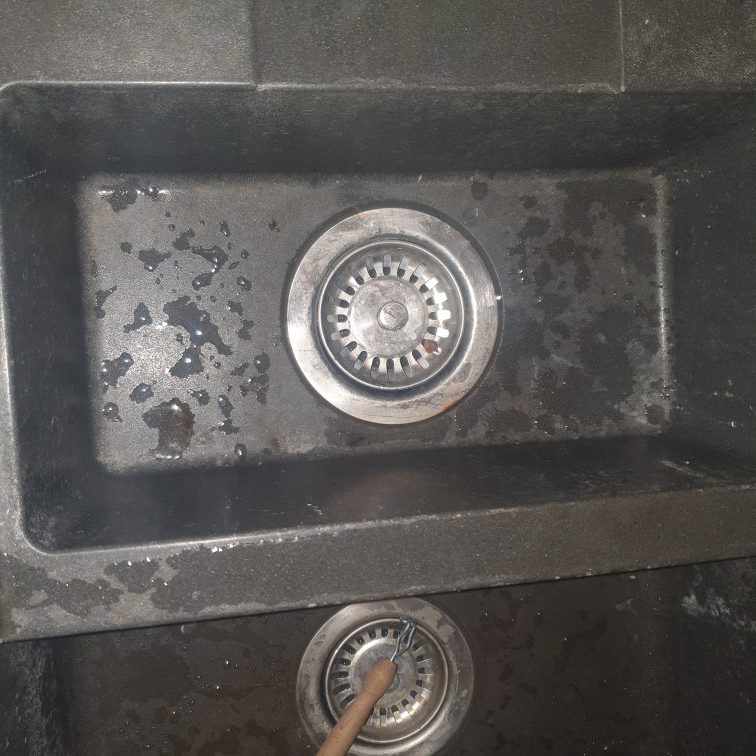Introduction
Are you tired of dealing with clogged drains that disrupt your daily life? Drain cleaning is a crucial aspect of maintaining a functional plumbing system. In this comprehensive guide, we will delve into the world of drain cleaning. From common causes of clogged drains to effective cleaning methods, we’ve got you covered. So, let’s dive in and discover how to keep your drains flowing smoothly.

Drain Cleaning: A Comprehensive Guide to Clearing Clogged Drains
Drain Cleaning: Understanding the Problem
What causes drains to clog?
Drain clogs can occur due to various reasons, including:
- Accumulation of hair: Hair is one of the primary culprits behind drain blockages. Over time, hair can clump together and create stubborn clogs.
- Soap scum and residue: Soap residue can build up inside pipes, trapping debris and causing clogs.
- Food particles: Kitchen drains often face clogs caused by food scraps, grease, and cooking oils.
- Foreign objects: Accidentally dropping small objects, such as jewelry or children’s toys, down the drain can lead to blockages.
- Mineral buildup: Hard water can cause mineral deposits to accumulate, obstructing the flow of water.
How can I prevent drain clogs?
Prevention is key when it comes to maintaining clear drains. Here are some preventive measures you can take:
- Install drain strainers or screens to catch hair and large debris before they enter the pipes.
- Avoid pouring grease, oil, or food scraps down the kitchen sink.
- Use drain-friendly soaps and cleaners that minimize residue buildup.
- Regularly clean your drains using natural remedies or commercial drain cleaners.
Effective Methods for Drain Cleaning
DIY Methods for Clearing Clogs
- Boiling water: Start with the simplest method by pouring boiling water down the drain. This can help break up minor clogs caused by grease or soap residue.
- Baking soda and vinegar: Create a natural drain cleaner by combining baking soda and vinegar. Pour the mixture down the drain, let it sit for a few hours, then flush it with hot water.
- Plunger: A plunger is a handy tool for dislodging clogs. Place it over the drain, ensuring a tight seal, and vigorously plunge up and down to create pressure that can clear the blockage.
- Wire hanger: Straighten a wire hanger and create a small hook at one end. Insert it into the drain and fish out any debris or hair that might be causing the clog.
Professional Drain Cleaning Services
While DIY methods can work for minor clogs, persistent or severe blockages may require professional intervention. Drain cleaning experts possess the tools, knowledge, and experience to tackle even the most stubborn clogs. They offer services such as:
- Hydro jetting: This method involves using high-pressure water to blast away clogs and buildup within the pipes, ensuring a thorough cleaning.
- Auger or snake: Plumbers Bristol use specialized tools like augers or snakes to break up and remove blockages that are deep within the plumbing system.
- Camera inspection: In cases where the source of the clog is not apparent, plumbers may perform a camera inspection to identify the exact location and nature of the blockage.
Frequently Asked Questions (FAQs)
1. How much does professional drain cleaning cost?
The cost of professional drain cleaning services can vary depending on the severity of the clog, the location of the drain, and the service provider. On average, expect to pay anywhere from $100 to $300 for drain cleaning.
2. Are commercial drain cleaners safe to use?
While commercial drain cleaners can be effective, they often contain harsh chemicals that can damage pipes and harm the environment. It’s advisable to use natural remedies or consult a professional plumber for safer alternatives.
3. Can clogged drains cause other plumbing issues?
Yes, clogged drains can lead to a range of plumbing problems if left unattended. These include pipe corrosion, sewage backups, and even water damage to your property. It’s crucial to address drain clogs promptly.
4. Is preventive drain cleaning necessary?
Yes, preventive drain cleaning is essential for maintaining a healthy plumbing system. Regular cleaning can help remove buildup, prevent clogs, and extend the lifespan of your pipes.
5. How often should I clean my drains?
The frequency of drain cleaning depends on several factors, such as the age of your plumbing system, the number of occupants in your home, and the presence of any known issues. As a general rule, it’s recommended to clean your drains at least once a year as a preventive measure.
6. Can I use drain cleaning methods on all types of drains?
Different drains may require specific cleaning methods. For example, bathroom drains often have hair clogs, while kitchen drains may face grease-related blockages. Tailor your cleaning methods to the specific drain and the nature of the clog.
Conclusion
Clearing clogged drains is essential for maintaining a functional and hygienic plumbing system. By understanding the causes of drain clogs, implementing preventive measures, and employing effective cleaning methods, you can keep your drains in top condition. Whether you opt for DIY techniques or seek professional assistance, don’t neglect the health of your drains. Remember, a little maintenance goes a long way in preventing major plumbing issues solved by plumbers.
